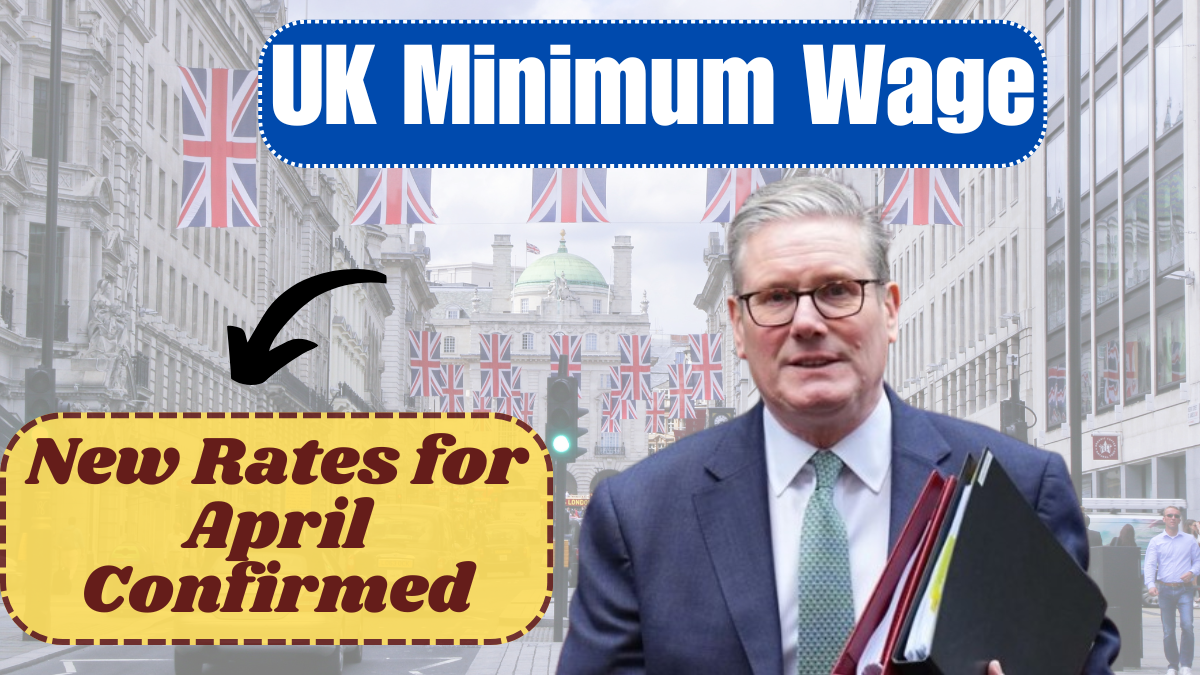The UK Government has officially confirmed new National Minimum Wage (NMW) and National Living Wage (NLW) rates, set to take effect from 1 April 2025. With the cost of living continuing to climb, these increases aim to support workers across all age groups and sectors. For the first time, workers aged 21 and above will be entitled to the National Living Wage, bringing a significant pay rise for younger employees.
If you’re employed in the UK or manage payroll as an employer, understanding these changes is essential.

UK Minimum Wage Rates from April 2025
The following updated hourly rates will apply from 1 April 2025:
| Category | 2024 Rate (£) | 2025 Rate (£) | Increase (£) | Increase (%) |
|---|---|---|---|---|
| National Living Wage (21+) | £11.44 | £12.21 | £0.77 | 6.7% |
| 18–20 Year Old Rate | £8.60 | £10.00 | £1.40 | 16.3% |
| 16–17 Year Old Rate | £6.40 | £7.55 | £1.15 | 18.0% |
| Apprentice Rate | £6.40 | £7.55 | £1.15 | 18.0% |
| Accommodation Offset (daily) | £10.66 | £11.33 | £0.67 | 6.3% |
These changes reflect recommendations from the Low Pay Commission and are part of the government’s strategy to reduce wage inequality.
What Is the Difference Between National Minimum Wage and National Living Wage?
The National Minimum Wage is the minimum pay per hour almost all workers are entitled to. The National Living Wage, introduced for older workers, was previously limited to those aged 23 and above. As of April 2025, it now applies to all workers aged 21 and over. This change not only increases earnings but also expands eligibility to hundreds of thousands more employees.
How Much More Will You Earn in 2025?
If you’re working full-time, the new rates can mean a substantial difference in your annual income. For example:
A full-time worker aged 21+ working 37.5 hours a week will earn:
- 2024 total: £22,918
- 2025 total: £24,441
- Yearly increase: £1,523
Younger workers also see large percentage jumps, narrowing the gap between age groups and encouraging better workforce participation.
What Do These Changes Mean for Employers?
Employers must prepare for increased wage costs and ensure full compliance with the updated pay structure. Industries most impacted include retail, hospitality, agriculture, and care services where minimum-wage roles are common.
Companies will need to:
- Update payroll systems to reflect new rates from 1 April
- Budget for the additional wage bill
- Communicate clearly with staff about the upcoming changes
Failing to meet minimum wage laws can lead to penalties of up to £20,000 per underpaid worker, reputational damage, and legal action.
How Can Workers Make the Most of This Pay Rise?
Workers are encouraged to check their payslips and verify that the correct hourly rate is applied beginning April. Additional income can help cover inflation-driven expenses, repay debts, or build up savings. If underpayment is suspected, contact your HR department or reach out to Acas at 0300 123 1100.
You may also qualify for support like Universal Credit if income still falls below the cost-of-living threshold despite the increase.
FAQs
How does the new wage rate affect 21-year-olds?
As of April 2025, 21-year-olds will now be entitled to the National Living Wage of £12.21, a notable rise from the previous minimum wage of £8.60.
Is the minimum wage rise enough to cover living costs?
The new wage is a step forward, but with inflation remaining high, some groups argue that further rises may be needed in future years to match the real cost of living.
What happens if an employer doesn’t comply with the new rates?
They could face fines, back pay orders, public listing on the government’s non-compliance report, and even legal action depending on the scale of violation.
Will apprentices earn more in 2025?
Yes, apprentices will now receive £7.55 per hour, up from £6.40, which is an 18% increase, aligning with the 16–17-year-old bracket.
Does the Accommodation Offset apply to all workers?
No, it applies only if accommodation is provided by the employer as part of the job. The daily offset rate will rise to £11.33 in April 2025.
Are these rates reviewed annually?
Yes, the Low Pay Commission reviews and recommends changes annually. The government then adjusts the rates based on economic data, inflation, and labor market conditions.
Do these rates apply across the UK?
Yes, these rates apply in England, Scotland, Wales, and Northern Ireland. Employers throughout the UK must follow the same wage structure.
Where can I find official updates on the minimum wage?
You can view the official minimum wage guidelines at the UK Government’s website: gov.uk/national-minimum-wage-rates.
Click here to know more.
